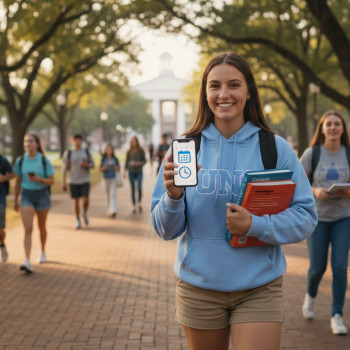Chem vs Bio for Pre‑Med Aspirants: A Friendly, Honest Guide
If you’re staring down the AP course catalog trying to decide between AP Chemistry and AP Biology, welcome to a rite of passage. This decision feels heavier than it should because “pre‑med” whispers an entire imagined future into the present: white coats, stethoscopes, clinical experiences, and — yes — endless prerequisites. But breathe. This choice doesn’t lock your fate. It shapes the way you learn and the skills you develop. Let’s walk through the trade‑offs, the real‑world implications, and how to make a choice that fits both your academic goals and your sanity.

Why this choice matters (and why it sometimes feels louder than it is)
At first glance, AP Biology and AP Chemistry map to obvious skill sets. Biology is concept‑heavy, vocabulary‑dense, and rich in systems thinking. Chemistry trains problem‑solving, quantitative reasoning, and attention to process. But for a pre‑med path, the stakes feel higher. Medical schools will expect you to have completed certain prerequisites in undergraduate years (general chemistry, organic chemistry, biology, physics, and the like). Which AP you choose can affect placement, confidence, and how your freshman year looks — but it won’t determine whether you get into med school.
Think of this as choosing your first board game to learn the rules of scientific thinking. One teaches you pattern recognition and narrative (bio). The other teaches you how variables interact in a system you can sometimes measure precisely (chem). Both are useful.
Big picture trade‑offs
- AP Biology → Strengths: conceptual understanding, memorization of systems, real‑world applications in physiology and ecology. Challenges: heavy content load, tricky experimental design, and sometimes shallow math.
- AP Chemistry → Strengths: quantitative reasoning, problem solving, logical stepwise approaches (great for MCAT-style thinking later). Challenges: abstract concepts like thermodynamics and quantum ideas that can feel removed from everyday biology.
Academic implications for pre‑med students
Here are the practical consequences of taking one AP over the other in high school, and how they translate to college and med school preparation.
Placement and prerequisites
Many colleges grant placement or credit for AP scores. Scoring well on AP Chem or AP Bio might allow you to skip an introductory course, which has pros and cons. Skipping a foundational course can speed you toward advanced work or let you explore other subjects; but if your high school course didn’t dig deep into lab skills or problem solving, you might miss essential training that undergrad courses provide.
MCAT preparation and skills alignment
The MCAT tests both biological systems and chemical/physical foundations. Strong reasoning in chemistry is particularly helpful for the Chemical and Physical Foundations section, while biology prepares you for the Biological and Biochemical Foundations section. Ultimately, diversity in preparation is best — a mix of biology and chemistry gives you flexibility and a conceptual bridge across the MCAT’s sections.
Laboratory experience
Quality lab experience matters. If your AP course emphasizes labs and experimental design, that’s a win. Hands‑on competence — pipetting carefully, keeping a clear lab notebook, understanding controls — matters in college labs and looks good on med school applications. If your AP choice leaves you light on lab skills, plan to seek undergraduate labs, summer research, or local internships.
Personal strengths and learning styles: match the course to how you learn
Choosing the right AP often comes down to what kind of learner you are. Ask yourself these honest questions:
- Do you enjoy solving multi‑step numerical problems, doing calculations, and proving a process? Chemistry may suit you.
- Do you prefer memorizing complex systems, understanding anatomy and physiology, and constructing narratives about how things function? Biology may feel more natural.
- Do you want to strengthen your weaknesses? If you dread equations but will later face the MCAT, taking chemistry in high school can give you a head start.
Examples
Imagine two students: Maya and Jamal. Maya loves stories, anatomy, and patient‑centered care; AP Biology helps her connect cellular processes to organ systems. Jamal enjoys puzzles, rates, and deriving relationships; AP Chemistry teaches him how to break complex problems into steps. Both are pre‑med, and both will succeed because they chose courses that fit their strengths while planning to shore up gaps later.
How colleges and med schools view your AP choices
Undergraduate admissions care more about rigor, grades, and trajectory than the specific set of APs on your transcript. Medical schools look at your whole academic record: the rigor of your degree, your GPA in science courses, clinical experience, research, letters of recommendation, and MCAT score. An AP choice that helps you earn a strong GPA and build confidence is often the better strategic move.
| Aspect | AP Biology | AP Chemistry |
|---|---|---|
| Skills Built | Systems thinking, memorization, experimental design | Quantitative reasoning, problem solving, stoichiometric thinking |
| MCAT Advantage | Biological/Biochemical sections | Chemical/Physical sections |
| Laboratory Focus | Biological assays, ecology, genetics labs | Titrations, kinetics, thermodynamics labs |
| College Placement | Potential credit for intro bio courses | Potential credit for general chemistry sequences |
Realistic scenarios and recommendations
Your decision can be informed by concrete goals and your school’s offerings. Below are common student profiles and tailored recommendations.
Scenario 1: You love living systems and plan a bio‑heavy major
If you’re leaning toward majors like biology, neuroscience, or physiology, AP Biology aligns well. It gives you early exposure to topics that will recur in depth during college, and it sharpens the vocabulary and conceptual frameworks you’ll need. Make sure your AP Bio course includes strong lab instruction so you’re not left behind in undergraduate lab settings.
Scenario 2: You gravitate toward chemistry, engineering, or quantitative work
If you enjoy mathematics and the logic of chemical interactions, AP Chemistry can strengthen problem‑solving and comfort with calculations. This is not only useful for the MCAT but also for understanding pharmacology, biochemical interactions, and the physical principles behind medical technology.
Scenario 3: You’re undecided or want the best of both worlds
If your school schedule allows, taking both AP Biology and AP Chemistry across two years is an excellent choice. If you can’t, consider taking the one you’re weaker in to build that missing skill before college. Another approach: take one AP now and pursue the other subject through summer programs, community college courses, or online modules if you feel a gap later.
Study strategies that actually work (and aren’t soul‑crushing)
Whichever AP you choose, success depends on strategy, not just talent. Here are focused habits for maximal return on time.
For AP Biology
- Build concept maps: link cellular processes to tissue and organ function.
- Practice free‑response questions that ask you to design experiments or interpret data.
- Create mnemonic chains for heavy vocabulary, but balance with conceptual understanding so you’re not memorizing blind facts.
- Do lab write‑ups with clear control/variable logic — this helps on both AP and college labs.
For AP Chemistry
- Master algebraic manipulation; many chemistry problems are algebra in disguise.
- Practice stoichiometry and unit conversion until it’s mechanical.
- Work through multiple older free‑response and multiple‑choice sets to internalize problem patterns.
- Understand molecular conceptualization — soak up the why behind the math.
Balancing workload, burnout, and smart planning
Pre‑med trajectories can tempt students into a crush of APs every year. Quality matters more than quantity. A few actionable tips:
- Choose challenging courses you can do well in rather than stacking every AP.
- Prioritize consistent, spaced study over occasional all‑nighters.
- Schedule deliberate recovery: exercise, social time, and hobbies matter for long‑term performance.
- If you struggle with time management or content gaps, seek targeted help. Personalized tutoring — like Sparkl’s 1‑on‑1 guidance and tailored study plans — can plug gaps efficiently, build confidence, and keep your trajectory on track without burning out.
How to combine strengths if you only pick one AP
Picking a single AP doesn’t mean you’re limited forever. Here’s how to create balance.
- If you take AP Bio: supplement with math practice, and take community college or online chemistry modules to boost quantitative skills.
- If you take AP Chem: seek opportunities to read physiology or volunteer in clinical settings to ground your chemistry in human health.
- Look for summer lab programs or research internships — even short experiences demonstrate hands‑on competence.
Sample semester plan for a confident pre‑med freshman (if you took only one AP)
Here’s an example roadmap to recover or extend skills during your first year of college.
| If you took AP Bio in HS | Suggested Freshman Courses/Actions |
|---|---|
| Strengthen quantitative skills | Enroll in General Chemistry 1 or a math course; join tutoring sessions for problem sets |
| Laboratory depth | Join undergrad lab or take a lab‑intensive course in biology or chemistry |
| If you took AP Chem in HS | Suggested Freshman Courses/Actions |
|---|---|
| Build biological context | Take Introductory Biology or a physiology class; volunteer in clinical settings |
| Gain lab experience | Seek research assistant positions or coursework with wet lab emphasis |
When to lean on extra help — and what to ask for
There’s no shame in asking for help. Use tutoring or office hours for surgical support: targeted weak spots, problem solving, and exam strategy. If you’re aiming for medical schools, improving study efficiency now saves months later. Personalized tutoring — such as Sparkl’s tailored study plans and expert tutors — can accelerate weak area improvement and provide practice that’s aligned with AP exam demands or college placement needs.
Questions to ask a tutor or mentor
- Can you show me the model solution and the logic behind it?
- Which concepts are most commonly tested in the AP exam or freshman course?
- Can you design a 4‑week practice plan focused on my weakest topic?
- How do I translate quick labs in high school into rigorous college lab skills?
Decision checklist: Choose with confidence
Run through this checklist before you enroll:
- Do you learn better through equations or narratives?
- Which course will let you earn a higher, sustainable grade?
- Does your school offer strong lab components for either AP?
- Will taking this AP now reduce your workload or stress in college?
- Can a tutor or program (like Sparkl) help you cover gaps if you later identify them?
Final thoughts — this is a marathon, not a single race
AP Chemistry or AP Biology is important, but neither is a golden ticket nor a trapdoor. Choose the path that plays to your strengths, keeps you engaged, and leaves room to grow. If that means taking one AP and later building complementary skills in college — that’s perfectly fine. Medical school aspirants succeed through sustained effort, reflective choices, and strategic support.
When in doubt, prioritize depth over breadth. It’s better to excel in one rigorous AP and gain supplementary experience than to overextend yourself across multiple APs and lose mastery. And remember: targeted guidance can make a disproportionate difference. Sparkl’s personalized tutoring, 1‑on‑1 guidance, tailored study plans, and AI‑driven insights are the kind of help that fits naturally into this strategy — precise, focused, and built to keep you moving forward without burning out.

Actionable next steps (one‑week plan)
Not ready to pick? Try this one‑week diagnostic plan to see which subject clicks.
- Day 1–2: Spend 1 hour each on a core concept: equilibrium and stoichiometry (chem); cell signaling and genetics (bio).
- Day 3: Do one practice FRQ from each subject and time yourself.
- Day 4: Compare which felt more intuitive and which required more study time.
- Day 5: Meet with a counselor or tutor for a 30‑minute diagnostic to identify gaps.
- Day 6–7: Make a tentative choice and outline a study plan; if undecided, plan to take the course that strengthens your weaker skill.
Closing: Trust the process, not the pressure
There’s no ideal single answer. AP Biology and AP Chemistry each provide valuable perspectives for future physicians. The wisest choice is the one that helps you learn deeply, preserves your motivation, and prepares you practically for the next steps. Use the resources around you — teachers, advisors, peers, and targeted tutoring — to make that choice deliberately. Keep a curious mindset, and remember: the path to medicine rewards resilience, curiosity, and steady growth over time.
If you’d like, I can help you draft a one‑semester study plan tailored to your strengths and schedule, or sketch a 6‑week review plan for either AP with suggested practice problems and milestones.

















No Comments
Leave a comment Cancel